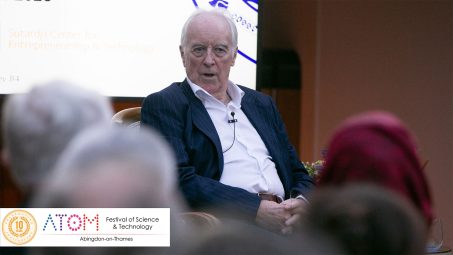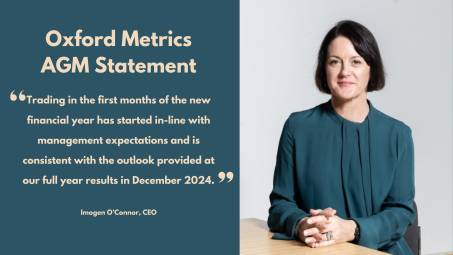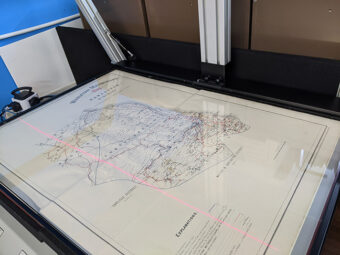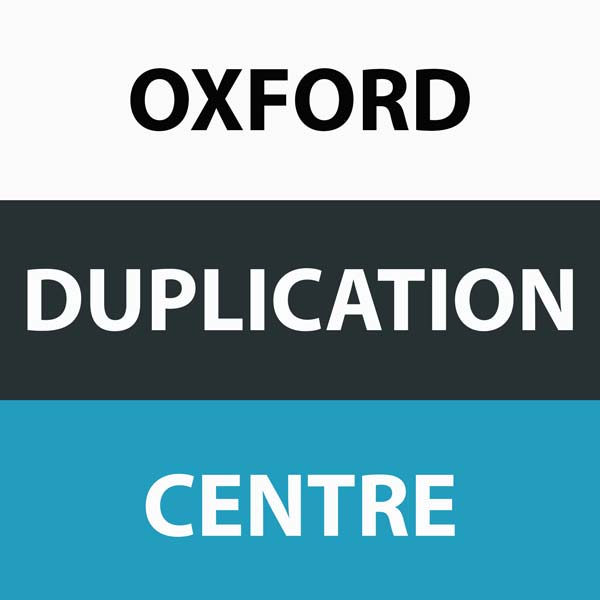
How to Digitise Your Archives – And Is It Worth It?
Whether you’re a publisher, a library, corporate or private client, you almost certainly have hundreds, if not thousands, of historic archives that are hugely valuable, that require digitising to help preserve historical content or to build an online platform for viewing. Digitising an archive to make works available online sounds easy, but the reality […]
Whether you’re a publisher, a library, corporate or private client, you almost certainly have hundreds, if not thousands, of historic archives that are hugely valuable, that require digitising to help preserve historical content or to build an online platform for viewing.
Digitising an archive to make works available online sounds easy, but the reality of finding, transporting, scanning, refining, and organising large collections of historical publications is anything but. Delivering a digital archive is full of surprises:
“Whilst working with aged, related archives, it is impossible to truly know what to expect when we start preparing the digitisation. We need to be aware of all eventualities with old media.”
Cheryl-Lee Foulsham – Director Oxford Duplication Centre
1. DON’T GO IT ALONE; TRUSTING YOUR DIGITISATION COMPANY WITH YOUR ARCHIVE
One of the most complex projects we are currently working on a vast archive of academic books typewritten on Onion Skin paper. Our company was trusted with this very valuable academic archive to digitise into PDF with optical character recognition, ready for online presence.
This medium is extremely challenging, especially when the books require a non-destructive scan of each page, and with each page being of this fragile medium which can readily damage. Given the nature of onion skin paper, typically called because of the translucency of the paper, is that the text becomes transparent through the back pages. To combat this, we must ensure a clean white sheet of paper is placed between each page before scanning. With the digitised scan, we can then apply a guide fix to eliminate the back text to leave the front-page text intact. This has been very successful with our professional machinery and software. We are halfway through the project, with the aim to complete in July 2022.
We are extremely proud to work with The London Library, digitising their typed bound volumes. This project is very complex, requiring our technicians to painstakingly separate each page from their books very carefully. With no margin, the text was typed right to the very edges of the pages which were stitched in place. Once the pages were removed, we could then clean the edges and carefully digitise before applying Optical Character Recognition to enable the book to be searchable.
Since 2018, we were asked to convert The Kidlington Historical Societies Archives of their entire collection of document archives dating back to the 1700’s, in the medium of newspapers, letters, photographs, magazines and books. This archive is still ongoing, hopefully to be completed in March 2022. The aim is to provide the global research community with immediate access to over 50,000 pages of historical information about our famous village Kidlington over a period of 300 years.
2. CHALLENGES OF DIGITISING ARCHIVES
One of the biggest (and most surprising) challenges of digitising any archive is identifying and finding original copies of back-catalogue titles – especially when those back catalogues extend to hundreds of years. As part of the Palestine Police Association Book Archive (PPPA) project, the association had been bequeathed a complete newsletter archive that was thought to have been destroyed. This was a wonderful and very important find for the historical society, who then contacted our company to provide digitisation and optical character recognition, which has helped preserve these valuable newsletters ready for global recognition and research.
OCR is used to convert the non-editable soft copies into editable text documents. This supports our clients with adjusting documents and optical character recognition in being able to find text within the pages.
3. COLLABORATION OF PARTNERSHIPS
It is important to note, that the sheer scale of digitisation requires the collaboration of trusted partners and highly professional technicians to ensure the success of digitising valuable archives. We work closely with digitisation partner Preservica to ensure that all digitised cultural media are uploaded to a leading platform for preserving online data specifically for archives. This is very important partnership, one that guarantees important archives are held on a secure platform ready for online viewing and downloading.
4. HANDLE WITH CARE: TRANSPORTING AND SCANNING RARE HISTORIC WORKS
Transporting archives is the equivalent of moving expensive works of art, so everything from the temperature and humidity of storage space to strict handling guidelines, is followed to the letter. Having utmost trust in such a partner to operate on your behalf is also crucial, so we ensure a rigorous criterion for your archive transportation. We find adhering to the smallest of details is crucial to building trust and delivering a high-quality digital archive.
We are highly confident in our transportation and handling, that many libraries, corporates, and heritage clients allow us remove archives offsite or out of the country. We offer a personal service for the transportation and return of rare media, to ensure our clients feel confident in our project management of the archive digitisation process.
5. ALLOW PLENTY OF TIME (AND EVEN MORE PATIENCE)
However long you estimate your digital archive project taking, you should always add a sizeable amount of contingency time. This is a process that just can’t be rushed.
We estimate an average of 8-12 weeks to collect, transport, scan and return a project. So, a client requesting the digitisation of 50-60 titles can expect to have them returned between one and two months after collection, which is a big commitment on their part and trust on our part.
And there are lots of other technical details that can expand the project timeline. The fragility of older media means that there must always be someone monitoring the machinery to protect archives from accidental damage. Our philosophy is “if we can’t scan a book without damaging it, we won’t scan it.”
Further challenges arise after the media has been scanned. Some scientific, non-destructive titles have been written on old writing machines, so the ink quality can vary substantially from page to page. There is some technically intricate work needed to ‘clean up’ text, sharpen, or refocus letters – especially on the pages of these older titles – but what you get at the end is a publication much easier to read than the original. This attention to detail naturally takes time.
6. BE PREPARED TO INVEST IN THE FUTURE
A digital archive project needs substantial financial commitment to secure the safe transportation and scanning of thousands of titles, and the professionalism of a trusted and knowledgeable digitisation team. We dedicate a team of full-time staff to each project, with roles ranging from project management to bibliographic maintenance, book selection, transport and quality assurance. Cutting corners will only cost you more down the line.
7. IS IT WORTH THE EFFORT?
The most important effect of undertaking and investing in the lengthy, painstaking (and, yes, often frustrating) task of building a digital archive, is making important publications – many of which have been lost or forgotten – highly accessible via your website. Whether it’s helping a PhD student in Tokyo or a librarian in Oxford, you’ll be playing a pivotal role in narrowing the gap between readers and research-driven progress.
“All knowledge is out there. The important thing is making it as widely available as possible.”
Danielo Methke, DGBA Project Lead, De Gruyter
Kind Regards
Cheryl-Lee Foulsham
Director
Oxford Duplication Centre
Corporate, Consumer & Heritage Digitisation
29 Banbury Road Kidlington Oxford OX5 1AQ
T: +44 (0) 1865 457000
W: www.oxfordduplicationcentre.com
E: cheryl@oxfordduplicationcentre.com
Vat Registration Number 982 1644 05
Office Hours Monday – Thursday 8-4pm Friday 8-3pm
Collections and Deliveries 10-3pm by appointment
Closed Saturday and Sunday
https://www.linkedin.com/in/oxfordduplicationcentre/
https://twitter.com/oxfordduplicate
https://www.instagram.com/oxfordduplication/
Contributions from
Emma Warren-Jones
More in Tech, IT & Comms

Get Support Announced as B4’s Official IT Partner
We are delighted to announce that Oxfordshire’s leading IT Services provider, Get Support, have become B4’s Official IT Partner.

Stephen Clarke: Leading the Way at the ATOM Festival of Science...
Stephen Clarke, our Principal at Cherwell College Oxford, is not only a distinguished leader and former British diplomat, but also a passionate advocate for science and education. As the Chairman of ATOM Festival of Science & Technology, Stephen plays a pivotal role in bringing world-class scientific discussions and innovations to the heart of Abingdon. Stephen’s leadership ensures that the festival remains dynamic, inclusive, and engaging for people of all ages.

Oxford Metrics: AGM statement
At Oxford Metric’s AGM held in February, CEO Imogen O’Connor made the following statement
From this author

Do You Have Paperbased Records – Its Time to Protect Those...
A very important reason to archive your documents and archives is to avoid losing data. All documents are vulnerable to being destroyed, deleted, natural disaster, such as a flood or fire. A more serious reason for document archiving is deterioration of the papertypes. I cannot count the number of times we have experienced paper […]

Maps, Plans & Posters | Oversized Scanning Solutions
Our services at Oxford Duplication Centre offer oversize scanning solutions for maps, plans and posters of any document type, from parchment, linen, cotton and paper. Our archive technicians have extensive experience in digitising complex document types into high quality digital files, ideal for archival purposes, viewing and uploading. Output formats are straightforward offering any type […]

Why You Should Consider Your Documents And Have Them Digitally Preserved.
Digitising paper documents into secure & accessible electronic records. Our services at Oxford Duplication Centre offer a complete range of document scanning solutions to digitise archives of existing records. We can handle any type of document, from student records to complex technical drawings, from a single file through to entire archives. Our services digitise upto […]


